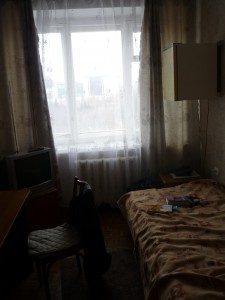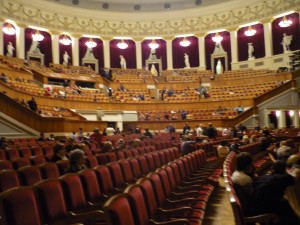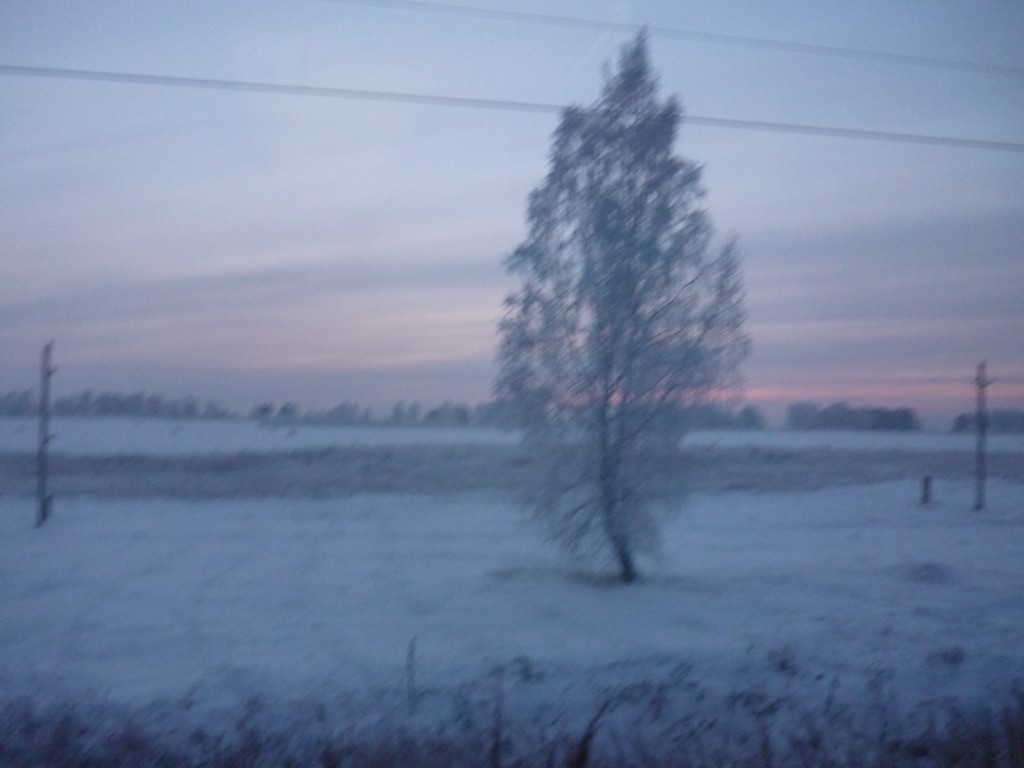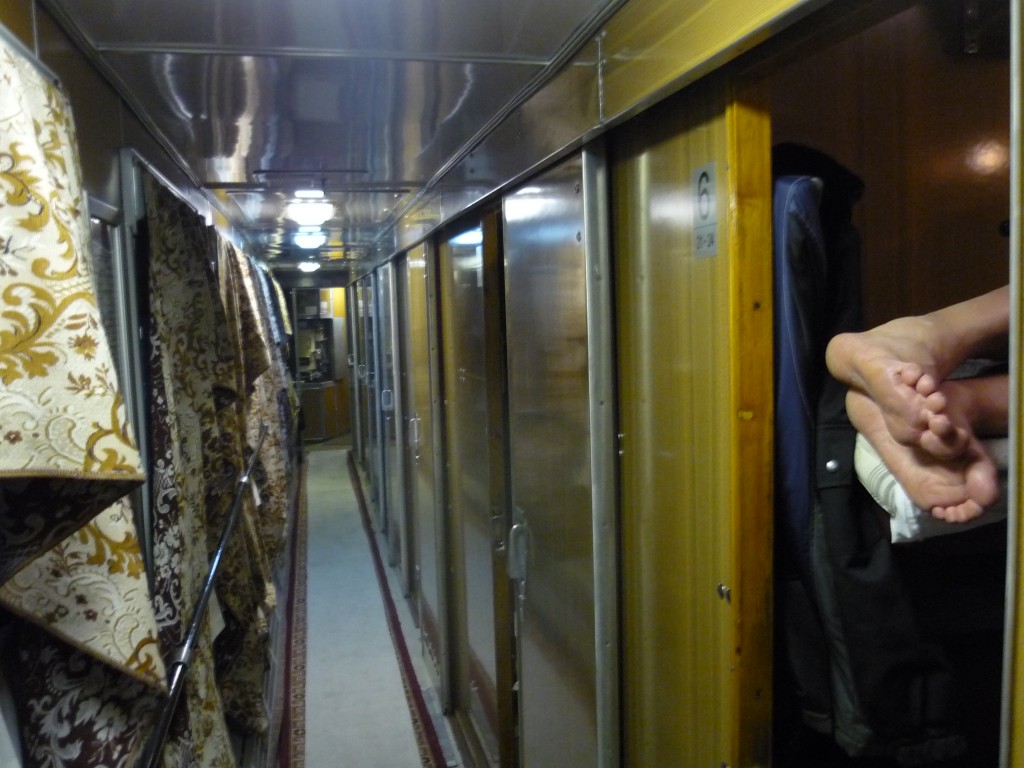Dec. 7 – Novosibirsk
No pink champagne, no mirrors on the ceiling. Instead, decrepit elevators and shared (not co-ed) toilets and shower rooms. But if it’s possible to feel nostalgia for a Soviet era I never knew, I’m feeling it here in room 617. It’s tidy but dingy and has a smoked-in smell. There’s beige floral print wallpaper, wood tile floors, small bed, desk, and a cracked sink. Some of the paint has been scratched off the door, which can be opened with an old-fashioned key. Out the window, a view of Novosibirsk’s skyline and central park. In the red-carpeted corridor, where the light is dim but somehow glaring, the cleaner has permanently parked her cart. The shower has no head, just a stream of water. On the staircase landings, lonely potted plants and posters advertising hairdressing services. All for $50/night. I could go to a modern hotel in Novosibirsk, but why would I want to miss out on this? After all, it has Wifi.
I spent today walking the length of Novosibirsk’s two main streets; Voksalnaya magistral and Krasny prospekt. There’s lots of concrete to go with the gray skies, none of it particularly attractive. I saw some new buildings being built, but many more that were tired, like the Tsentralnaya where I’m staying. There were many Novosibirniks out shopping. The usual assortment of elegant women in long coats, men dragging on cigarettes, mothers out with prams and snowsuited children. The city looks better at night, when lights strung on buildings can work magic and the darkness can hide its plainer features. There’s plenty of night to go around. The sun didn’t rise until 0900, and was gone again before 1800.
The colossal Opera and Ballet Theatre is Novosibirsk’s focal point. Bigger than Moscow’s Bolshoi Theatre, it’s on Lenin Square within 200m of my hotel. “Spartacus” by Aram Khatchaturian was playing tonight, and I went to see my first ballet.
The hall, a sea of red velvet seats, was full – and not just with old ladies. It seemed as if Novosibirsk people of all ages go to the ballet the way people in North America go to the movies. I do not have my iPod with me and it was nice to hear music again – kinetic, percussive, syncopated. The action on stage was all gladiators and centurions, orgies and death. To my novice eyes, Spartacus’s dramatic and gruesome end, impaled by a dozen spears and hoisted in the air, was impressive choreography.
A very early train tomorrow to Kazan. 2400 kilometres (equivalent to Toronto-Miami or Vancouver-Denver), 37 hours, three time zones. As usual, no “live” post, but some thoughts on travel photography tomorrow.


![P1020026[1]](http://www.patrickokens.com/wp-content/uploads/2011/12/P10200261-300x225.jpg)


